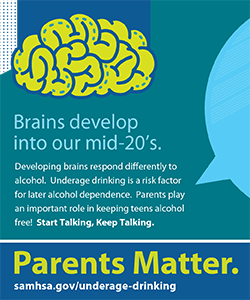|
A statewide Tornado Drill will be
conducted at 10:00 am Tuesday March 7th
- All NWS offices in IL will
issue an actual Tornado Warning as a test for all 102 counties
in the state
- The TEST warning will clearly
state that NO SEVERE WEATHER is occurring, and that we are doing
this for test purposes
- We don’t do this to scare
people, but we do this to adequately test the Emergency Alert
System (EAS) that radio and TV broadcasters use to warn the
public of hazardous weather. This is also done to verify that
people using weather alert radios can receive an actual tornado
warning.
- This has been done for more
than 25 years – every first Tuesday in March at 10 am.
- Use of an actual Tornado
Warning for this test has been approved by NWS Headquarters, the
Federal Communications Commission (FCC) and the Illinois
Broadcasters Association (IBA)

The main themes for this year’s
Severe Weather Preparedness Week are:
- Deadly tornadoes have
already occurred across the state of Illinois this year
(February 28th). NOW is the time to be prepared for severe
storms
and flash flooding!
- Everyone needs to have
a plan in mind regarding WHERE they would seek shelter
from tornadoes and severe storms at home, work, and any
location where people gather
- Check your insurance
policies and make any necessary adjustments in the event
you might suffer storm or flood damage
- It is VERY important
for people to be prepared for floods, tornadoes and
severe thunderstorms all year in the state of Illinois.
- If flooding is
occurring or imminent you may need to evacuate your
home quickly. Remember the dangers of driving on
flooding roads. Call for help if you are stranded
and can’t evacuate safely.
- In the event of a
tornado, go to the basement under a sturdy piece of
furniture or the stairwell. Otherwise, go to the
lowest level in a small area, like a closet,
interior hallway or bathroom without windows.
- Have an Emergency
Supply Kit with extra clothing, money, water,
non-perishable foods, medications, tools and
flashlights
- Do NOT just rely on
outdoor warning sirens to alert you that a tornado
or severe storm is approaching. Have multiple ways
to receive information such as:
- Weather Alert
Radio
- Portable radio
with battery backup
- Wireless
Emergency Alerts on most smart phones
- Cell phone apps
that will send you warnings for your area
- Local TV and
radio stations

Severe Weather Impacts
- The United
States experiences more tornadoes than any
other country in the world! An average of
nearly 1,300 tornadoes impact the U.S. every
year.
- Illinois
averages about 50 tornadoes each year. Last
year, 45 tornadoes were reported in Illinois
resulting in 16 injuries and causing more
than $10 Million in property damage.
- Tornadoes
in Illinois have killed 225 people, and
injured more than 4,500 since 1950
- The biggest
tornado outbreak in Illinois since 1950
occurred on April 19, 1996. A total of 39
tornadoes were reported on that day,
including four F3 tornadoes. One person was
killed, 74 people were injured, and property
damage exceeded $100 Million.
[to top of second
column] |

- High wind from downbursts
and straight-line winds cause more damage than nearly 75% of
the tornadoes that occur in Illinois! Illinois averages
around 550 reports of thunderstorm related wind damage each
year.
- 25 people have died from
damaging winds in Illinois since 1995. Since 2000 there have
been more than 125 people injured in Illinois from severe
thunderstorm wind.
Central / Southeast Illinois Severe
Weather Statistics
- Of the top 20 counties
with the most tornadoes in the state, 11 are in central
or eastern Illinois. These are:
-
Logan (ranked #2),
- Sangamon (#3),
- Tazewell (#4),
- McLean (#5)
- Woodford (#6),
- Champaign (#11),
- Macon (#12),
- Piatt (#13),
- Douglas (#16),
- Vermilion (#18),
- Mason (#20).
[Data based on tornadoes per square mile from
1950-2016]
- Since 2008, 73% of
all severe weather events (damaging winds, tornadoes
and large hail) in central and southeast Illinois
had advance warning by the NWS in Lincoln, with an
average lead time of 16 minutes.

Severe Weather Warnings
- NWS
Implementation of storm based warnings for
smaller areas, and portions of counties, has
resulted in a 79% reduction of false alarms
across central and eastern Illinois since 2008.
- Since 2013, NWS
offices have put enhanced wording in all Tornado
Warnings.
- This is
intended to improve communications of the
anticipated threats and impacts of
tornadoes. Specific information in the
warning will highlight the tornadoes that
are expected to produce, or confirm the
occurrence of, considerable or catastrophic
damage.
Severe Weather Preparedness
- The
National Weather Service’s goal is to build
a “Weather Ready Nation”. The purpose of
this initiative is to save lives as well as
livelihoods. By increasing the nation’s
weather readiness the country will be better
prepared to protect, mitigate, respond to,
and recover from weather-related disasters.
Visit the Lincoln NWS website at:
www.weather.gov/Lincoln
for the latest weather and river forecasts, warnings, current
conditions, radar & satellite imagery, and climate information.
[Chris Miller, Warning Coordination
Meteorologist
National Weather Service]


|